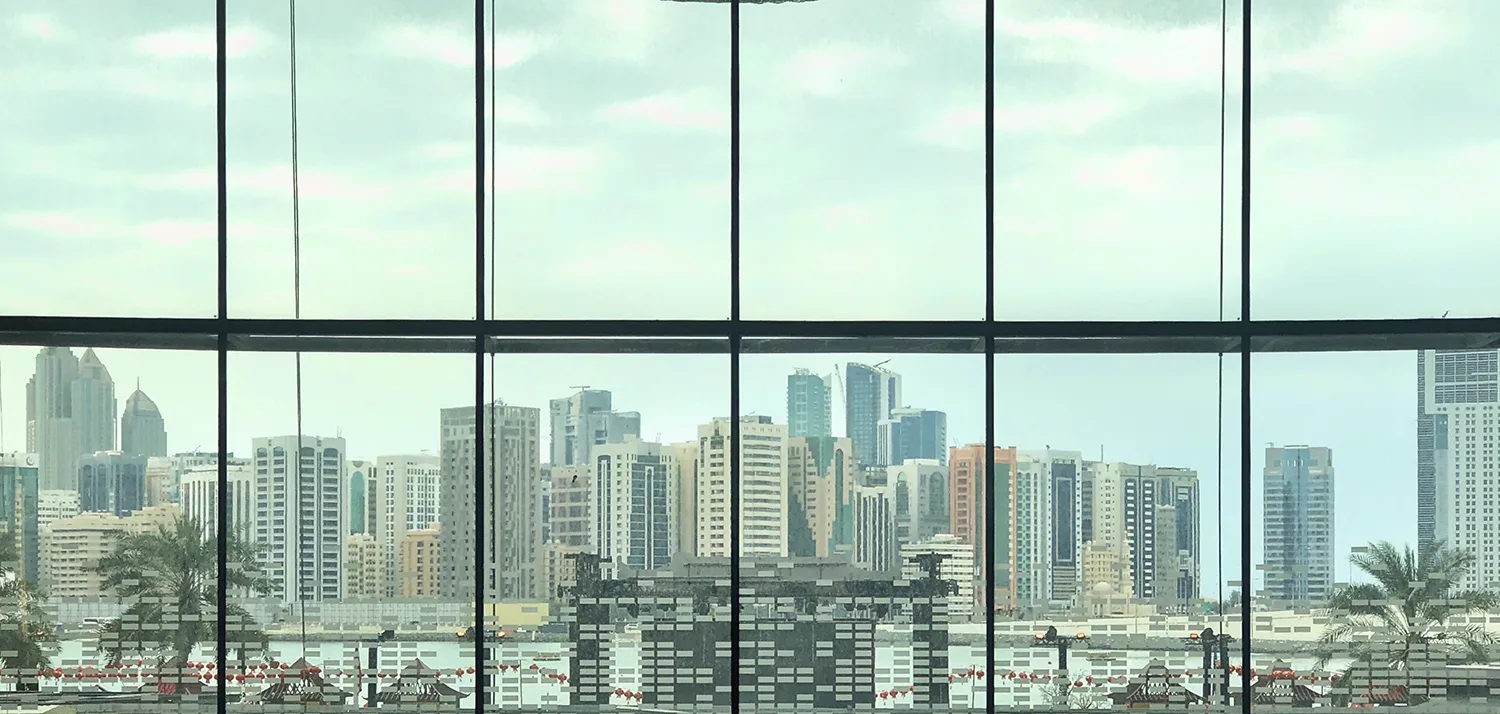
Dubai is a modern, fast-growing city where convenience, lifestyle and architecture go hand in hand. Yet alongside skyscrapers, beachfront communities and a thriving nightlife, many residents face a common challenge: noise. Whether it’s traffic from Sheikh Zayed Road, late-night music from beach clubs, or the constant rhythm of construction, prolonged noise can affect sleep, mental well-being, and overall comfort.
This situation has led more residents to explore soundproof windows in Dubai. High-quality acoustic glazing has become one of the most effective ways to create a quieter, healthier indoor environment. This guide explains how soundproof windows work, what types are best for Dubai’s climate and construction style, and how to make informed decisions when upgrading your home.
Dubai’s skyline evolves quickly. New towers, infrastructure projects, and road expansions create unavoidable noise. Construction activities may continue at night during approved periods, and high-rise buildings tend to reflect and amplify sound.
According to Dubai Municipality’s environmental guidelines, permissible noise levels vary throughout the day, but major construction corridors can regularly exceed comfortable indoor limits. This makes proper window insulation more important than ever.
Areas near Sheikh Zayed Road, Al Khail Road, Hessa Street and Business Bay experience persistent traffic noise. Engines, horns, motorcycles, and tyre friction contribute to sharp and constant disturbances. High-rise buildings in these zones often have single-glazed windows that are not designed for heavy urban environments.
Popular residential areas such as JBR, Dubai Marina, Bluewaters, and Palm Jumeirah are vibrant but acoustically challenging. Nightclubs and beachfront lounges create deep bass that travels long distances. Low-frequency sounds penetrate ordinary windows easily because glass and aluminum frames lack the mass and sealing needed to block vibration.
Most apartments built between the early 2000s and mid-2010s used:
Even small air gaps allow significant noise penetration. This is why many residents living in dense urban pockets notice disturbances even when windows appear closed.
People often confuse the two.
To truly minimize noise, windows must resist vibration and eliminate any air leakage.
Soundproof windows are often rated by:
Higher numbers mean better performance:
Acoustic laminated glass contains a special sound-damping interlayer, typically PVB or EVA. It:
The density and composition of the glass are key factors in noise reduction.
A larger air gap (ideally 70–150 mm) between glass layers dramatically improves performance. Many double-glazed units sold as “soundproof” do not perform well because the gap is too small.
A proper acoustic system must combine:
Only then can the window effectively block noise such as bass or road vibration.
These are ideal for villas and apartments experiencing medium to high noise levels. They are especially effective against:
They also improve safety because the glass remains intact even when cracked.
This system adds a second, independent window behind the existing one. It creates a deep cavity that delivers excellent noise reduction. It is a preferred solution for:
Because the two windows operate separately, sound has a harder time passing through.
A standard double glaze is not always enough, but when combined with laminated glass and the correct gap, it becomes effective. This option works well for:
Sliding doors leak more sound due to their track systems. Replacing them with upgraded acoustic sliders or installing secondary glazing significantly reduces:
Solutions like pivot doors (see: pivot door upgrades) can provide higher sealing performance depending on the layout.
Different noise requires different approaches:
The UAE’s extreme heat affects window systems. Choose frames that:
External glazing experts, such as the teams offering window replacement and new acoustic installations, can evaluate these factors during inspection.
Not true. Many double-glazed units use 5+5 mm glass with a small air gap. This only reduces minor noise. Proper soundproof windows require specialized laminated glass and optimized cavity spacing.
Curtains help with internal echo but cannot stop low-frequency or high-volume outdoor noise. Soundproofing depends on mass and airtight sealing, which curtains cannot provide.
Sliding windows can be improved but rarely reach high acoustic performance due to track gaps. Casement designs or secondary glazing give far better results.
A professional inspection includes:
Acoustic specialists often use decibel meters to understand actual noise levels.
Glass is cut to precise size, and acoustic interlayers are bonded under controlled conditions. High-quality installations require thermal and structural assessment due to Dubai’s heat.
This includes:
Technicians may conduct before-and-after measurements. In many cases, residents experience reductions between:
Reference tasks such as façade repair and glass work conducted at height (for example, using rope access façade services) often help prepare buildings for proper acoustic sealing.
Important factors include:
While exact numbers depend on the project, prices generally vary based on:
High-quality soundproof windows offer:
The energy savings alone can make the investment worthwhile in the long run.
Soundproof windows are most impactful for:
Soundproof windows are the core solution, but you can further improve comfort by:
For additional interior acoustic solutions, explore office partitions that can help create quieter zones inside open spaces.
You can also read: Environmental Sustainability & Indoor Comfort, which explains how comfortable indoor environments support long-term wellbeing.
Yes. Secondary acoustic windows are ideal because they do not require removing the existing window.
No solution blocks noise completely, but a well-designed system can reduce 50–96% depending on noise type and installation quality.
They usually improve energy efficiency by reducing thermal leakage and unwanted drafts, which can help stabilize indoor temperatures.
Yes. Acoustic frames and laminated glass are designed to meet safety standards used in tall buildings and are widely used in modern façades.
Laminated glass with a proper air gap typically outperforms standard double glazing for soundproofing, especially in noisy locations.
They can be improved, but secondary glazing or upgraded acoustic sliders usually deliver much better results than modifying old tracks.
Most single-room installations are completed in a day, while larger projects may take a few days depending on access and the number of openings.